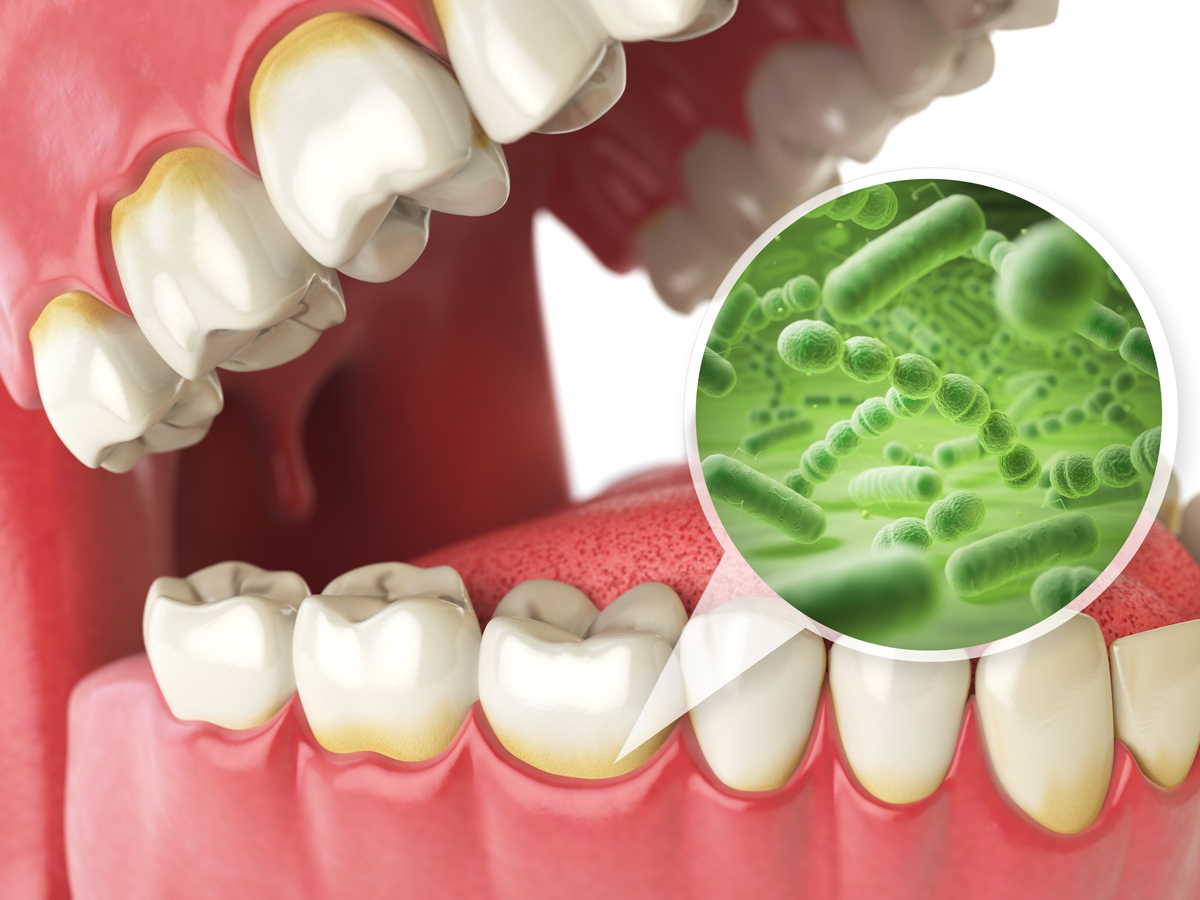In previous Gut Matters we have looked at the gut microbiome (the complex mixture of beneficial and pathogenic species that reside within our gut) and the impact on the health of our whole physiology. Now we need to examine the contribution of the oral cavity, as it is the gatekeeper to all that comes in from the outside, and the gateway to our health. I’m also going to highlight the strategies we can use to improve our oral health and consequently our overall health.
For centuries it has been suspected that our oral cavity has a wide ranging impact on the health of the whole body. Now that work is beginning on mapping the oral microbiome – the collection of bacteria that occupy the oral cavity – there are associations already being made with cardiovascular disease, pregnancy complications and auto-immunity.
There is so much more to oral health than having bright white teeth, and having healthy teeth and gums can be a predictor to overall health. The oral cavity contains a complex ecosystem that occupies all the niches and crannies, with over 600 species having been identified so far, with different species occupying different parts of our mouth, tongue, teeth and tonsils. While a well balanced oral microbiome contributes to good oral health, a poorly balanced oral microbiome is a major factor in the development of obvious dental problems like tooth decay, dental cavities, gingivitis and periodontal disease.
The interesting aspect of current research is the connection to other health issues. There are connections being made with a poor oral microbiome and pregnancy complications such as pre-term birth, low birth weight , gestational diabetes and pre-eclampsia. The placenta was long thought to a sterile environment but it is now understood that it contains it’s own complex ecosystem that is thought to replicate the oral microbiome. Ideally good oral health would be part of any pre-pregnancy planning and offers a useful strategy for healthy pregnancy outcomes for mother and baby. Breastfeeding then begins the process of seeding the oral cavity of the baby.
The connection of poor oral health to cardiovascular disease is considered to be in part the disruption of the conversion of nitrate to nitrite from leafy greens in the diet, an important regulator of blood pressure and the health of our cardiovascular system. Interestingly leafy greens promote the growth of the appropriate bacteria that carry out this conversion, so promoting healthy cardiovascular function. Poor oral health increases the circulation of inflammatory molecules in the blood stream and research has shown that simply beginning a good oral health programme can reduce cardiac events.
Emerging research is showing the impact of poor oral health on rheumatoid arthritis and osteoarthritis, linking variations in the oral microbiota with variation in the disease states, and offering a potential route to intervention.
So how can we impact our oral microbiome, as much of damage in the mouth is reversible with good oral hygiene, in addition to the usual brushing and flossing.
Firstly, chewing is so important. Don’t eat in a rush. Create saliva to start the process of breaking down food and getting the signals to the brain.
Avoid antibacterial mouthwashes. Research has shown that they can destroy the healthy bacteria and disrupt the delicate balance of the ecosystem in the mouth. In fact one study associated use of antibacterial mouthwashes with raised blood pressure. Use natural oral hygiene products that do not contain synthetic chemicals. Probiotic toothpastes are available. Aloe vera juice and green tea can be used as a mouthwash if necessary. Specialised oral microbiome probiotics are available to support the health of your ecosystem.
Consider coconut oil pulling, a traditional practice in many cultures. Start with one teaspoon of coconut oil, and build up to one tablespoon as you get used to the process. Swish around the mouth for about twenty minutes and then discard. Brush as normal afterwards. This cleans the niches and a growing body of research associates it with good oral health outcomes.
Finally and most importantly, eat a healthy diet, avoiding sugar and simple carbohydrates, and focusing instead on good quality protein, healthy fats, and vegetables and fruit. Snack on nuts and good quality artisan cheese instead of a sweet treat. Finishing a meal with a good cheese can beneficially alter the ph of your mouth.
We also have a clinical tool called Oral EcolgiX to analyse and monitor the health of the oral microbiome. It is a simple swab test and can be easily performed at home. Results can be used to advise on treatment plans and lifestyle factors.



This Post Has 0 Comments